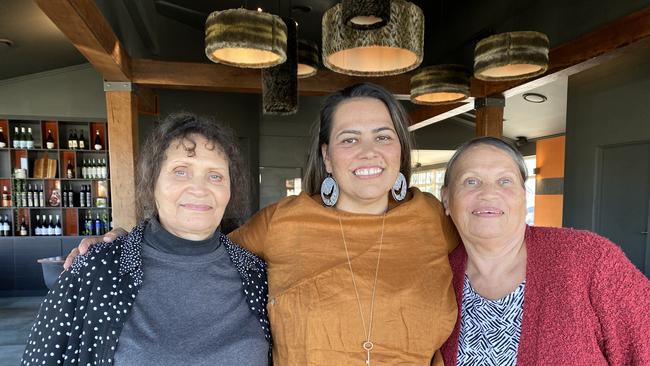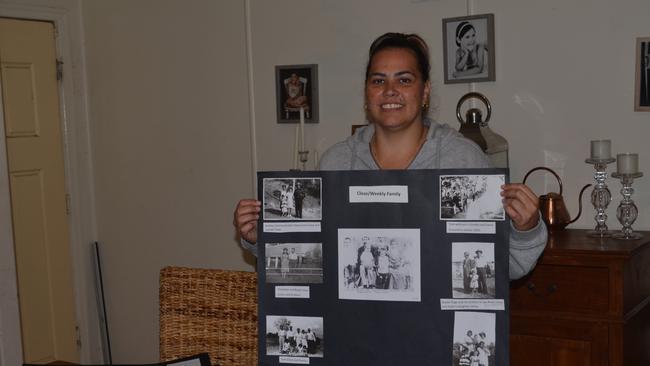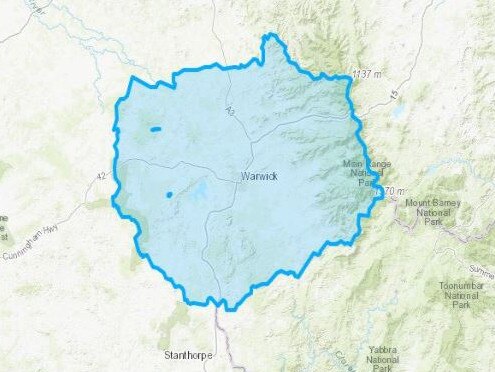Warwick’s Githabul community celebrate landmark steps in native title claim after years-long battle for recognition
‘My country is my home, that’s how it is for us’: Warwick’s Githabul people celebrate clearing one of their biggest hurdles in having traditional land rights recognised, but say their fierce fight for justice is far from over.

Warwick
Don't miss out on the headlines from Warwick. Followed categories will be added to My News.
Warwick’s Githabul people are finally celebrating a landmark step forward in securing their native title claim, after nearly 15 years of battling for recognition in the eyes of the law and their own community.
Melissa Chalmers is one of 10 applicants nominated to represent her tribe during the claims process, which would see the Githabul People’s connection to and special rights over land across Warwick and much of the Southern Downs legally recognised.
The Warwick resident said she was one of many who had to complete extensive research to prove her tribe’s heritage in the area before the Githabul clan could meet and authorise the claim.
Having finally cleared the biggest hurdle of registering the claim in the Federal Court and officially meeting with a Queensland South Native Title Services team, Ms Chalmers said it was a weight lifted off her shoulders.
“It’s just for us who live here, we’re not even recognised as traditional owners by other local people in the Warwick community and Aboriginal community,” she said.
“It was heartbreaking. I’d go to meetings, or even to do a Welcome to Country, and to have someone stand there and say to you ‘this is not Githabul country’, you just don’t know what that does to a person.

“I would say we’ve been forced into a position where we have to go for native title to be recognised as traditional owners.”
The Federal Court recognised the Githabul People’s native title rights over 1120 sqkm of northern NSW in 2007, but due to the border division the Queensland part of the claim had to be surrendered prior to approval.
For Githabul aunties Queenie Speeding and Diane Torrens, who live just over the border in Lismore and Casino, the claim registration was the first concrete step towards finally reuniting their people.
“For the Githabul families who have been living here all this time, I can’t imagine how it would have made them feel not having that consent determination because of the separation at the border,” Ms Speeding said.
“My country is my home, that’s how it is for us. Now this claim is registered, I feel at home here and can come here and feel at peace with it.”
“Landowners will have the opportunity to meet with (us) later in time when it’s all claimed, but I don’t want them to view us as a threat. We only live in portions, and we want to love and appreciate those parts that are given to us,” Ms Torrens added.

The fight for recognition could still prove a long one for Warwick’s Githabul community, with an estimated five years of advanced research and liaising with government bodies before native title consent determination.
The applicants also hope that further evidence of their lineage can see Stanthorpe included in the final acknowledgment.
Even now with years of work ahead, the three proud Githabul women hoped their struggle for recognition would bring greater understanding of native title and its meaning for traditional owners of the land.
“It is unfair that Aboriginal people, in this day and age, have to do so much to prove who we are and where we come from. But a lot of (Warwick) people have said they’re happy for us,” Ms Chalmers said.
“I think in the community, there’s a lot of people who misinterpret or misunderstand it, and believe we want to take (the land) away from them,” Ms Speeding added.
“What it’s going to take from us is commitment, it’s going to take unity, support, and you mix that in with a dose of respect and trust – that’s going to get us where we need to go with this.”




